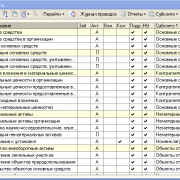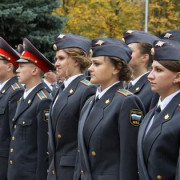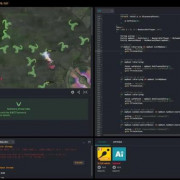Упражнения на модальные глаголы в английском языке для 6
Содержание:
- Modal verbs worksheets PDF
- Выражение модальных значений в прошлом
- Предварительный просмотр:
- Modal verbs exercises
- Оставьте свой комментарий
- Другие тесты автора Давайте пройдем тесты
- Ответы к упражнениям на модальные глаголы.
- Модальные глаголы: упражнения 9 класс
- Тесты для 5 класса Модальные глаголы
- Что такое модальные глаголы?
- Modal verbs may, might, could, should, ought to, shall, will Test
Modal verbs worksheets PDF
Free printable worksheets to download.
Can — Can’t — Modal verbs exercises PDF
Positive, negative and question forms.
Must — Mustn’t — Modal verbs exercises PDF
Practise modal verbs of obligation.
Must, Have to, Mustn’t, Needn’t — Modal verbs exercises PDF
Compare these modal verbs in exercises with answers.
Can, May, Must, Have to — Modal verbs exercises PDF
Mixed modal verbs in positive and negative forms.
Can — Be able to worksheets (PDF)
‘Can’ compared with ‘be able to’ in all tenses (PDF exercises).
Can — Be allowed to worksheets (PDF)
‘Can’ vs ‘be allowed to’ in PDF exercises to download.
English grammar worksheets PDF
All PDF exercises on e-grammar.org.
English grammar tests PDF
Marked grammar tests with keys.
Grammar rules
We use modal auxiliary verbs can, may, must in the English language for various meanings — ability, possiblity, probability, certainty, permission,
prohibition, obligation, opinion, speculation, etc.
Can
1. It is used to express the ability to do something.
I can swim very well.Can he speak English fluently? — No, he can’t.We cannot sing at all!
2. It expresses the possibility to do something.
We can go to the seaside at last. Our holidays start next week.
3. We use it to say that something is probable.
It can be John. He has blond hair and he is wearing glasses.
4. It expresses the permission to do something.
Why not? You can marry her. She is a nice girl.
May
1. It is used for permissions.
You may borrow my car. I won’t need it.May I smoke here? — No, you can’t, I’m sorry.
2. It is used to express probability or prediction.
They may call tomorrow. I hope so.
The main difference between may and can is in style. May is more formal than can. Can is typical of spoken English.
3. The opposite of may is must not or may not.
May I smoke here?- You mustn’t smoke here. (strong prohibition)- You may not smoke here. (more polite, very formal)- You can’t smoke here. (informal spoken English)
Must — Need not
1. Must is used for strong obligations. It is personal, because it expresses the speaker’s opinion or will.
I must clean my teeth. I want to be healthy.You must go there. And do it right now!
2. It means a strong recommendation.
You must see it. It’s the best film I’ve ever seen.
3. We use it to show the certainty of the speaker.
They must be at school by now. It’s already 9 o’clock.
4. The opposite of must is need not.
You needn’t wash up. I’ve already done it.
Must not has a different meaning. It is used to express prohibition that involves the speaker’s will.
We mustn’t come late today. Or the teacher will be very angry.He mustn’t enter this room. It is dangerous.
Note
Normally, these modal auxiliary verbs are not used in different tenses. The past tense of can is could, may and must, however, only
have the present form. All the other tenses must be formed in a different way.
We make the passive voice with a verb + be + past participle: This can be done. The laws must be respected.
Выражение модальных значений в прошлом
Употребительны сочетания модальных глаголов may, must, could, should, ought to (редко), can (редко) с т.н. «перфектным инфинитивом» для сообщения модальных оттенков действиям в прошлом. Перфектным инфинитивом называют сочетание вспомогательного глагола to have и третьей формы (причастия прошедшего времени) основного глагола: to have seen, to have returned, to have brought.
Обратите внимание, что в таких сочетаниях to опускается, а глагол have практически никогда не произносится полностью, сокращаясь до (иногда это приводит к ошибочным, но фонетически точным написаниям вроде I should of come вместо I should have come). Подобные сочетания обычно выражают оттенок нереальности действия или сомнение в том, что оно осуществилось. Точное значение зависит от семантики модального глагола:
Точное значение зависит от семантики модального глагола:
Подобные сочетания обычно выражают оттенок нереальности действия или сомнение в том, что оно осуществилось. Точное значение зависит от семантики модального глагола:
| Глагол | Пример конструкции | Значение | Примеры |
| should, ought to | + I should have done − I shouldn’t have done? Should I have done? | Упущенная возможность, сожаление о (не)сделанном. |
I should have known better. «Надо было думать головой».
She shouldn’t have risked her life. «Ей не стоило рисковать своей жизнью» (но она рискнула). |
| could, can | + I could have done − I couldn’t have done? Could I have done? | Упущенная возможность или сомнение в том, что события произошли именно так, а не иначе. |
He could have said no. «Он мог бы сказать нет» (но не сказал).
She couldn’t have done this! «Она не могла этого сделать!» (это невероятно). Ср.: She couldn’t do it. «Она не могла этого сделать» (была физически неспособна, не умела). |
| might, may, must | + I might have done − I mightn’t have done? Might I have done? | Глаголы выражают разную степень уверенности в том, что описываемые действия (не) произошли. |
He must have gone home. «Скорее всего, он ушел домой).
He may have been here before. «Наверно, он был здесь раньше». You might have ruined the soup. «Кажется, ты испортил суп» (но скорее всего — нет). |
Предварительный просмотр:
- Поставьте глаголы в скобочках в нужную форму.
1. My name _________________________________(be) Paul.
2. Last year I __________ _____________________(go) to a summer camp.
3. In her spare time she always __________________ (listen) to music.
4. Next summer they ________________________(take ) a trip to Brighton.
5. On Sundays we __________ _______________(like) going to the cinema.
- Выберите подходящий по смыслу модальный глагол
1. I (have to/must ) to check with my mum if I want to use the computer.
2. That (may be/must be ) John, he always comes at 10 am.
3. I can’t come to the club tomorrow because I (don’t have / have ) to go to the doctor.
4. This information (must/ don’t have to) be useful.
5. My brother (has/have) to walk the dog every day. It’s his chore.
- Перефразируйте предложения
- I’m sure he is the best pupil in his group.
- Perhaps strangers trick children in the Net.
- Perhaps all children have their chores at home.
- I’m sure pupils of our school do homework every day.
5. Perhaps safety rules are fair and important.
Источник статьи: http://nsportal.ru/shkola/inostrannye-yazyki/angliiskiy-yazyk/library/2015/12/03/test-k-unit-1-2-kuzovlev-5-klass
Modal verbs exercises
Online exercises with answers for beginners, elementary — intermediate levels.
Can, may, must, mustn’t, needn’t
Modal verbs exercise 1 | Modal verbs exercise 2
Rewrite sentences and keep the same meaning.
Modal verbs exercise 3 | Modal verbs exercise 4
Complete sentences with modal verbs.
Modal verbs exercise 5
Put words in the correct order.
Modal verbs exercise 6 | Exercise 7
Choose correct answers (multiple choice).
Can — Be able to
‘Can’ compared with ‘be able to’ in all tenses (online exercises and grammar rules).
Can — Be allowed to
‘Can’ vs ‘be allowed to’ (exercises with answers and grammar rules with examples).
Оставьте свой комментарий
Ответственность за разрешение любых спорных моментов, касающихся самих материалов и их содержания, берут на себя пользователи, разместившие материал на сайте. Однако редакция сайта готова оказать всяческую поддержку в решении любых вопросов, связанных с работой и содержанием сайта. Если Вы заметили, что на данном сайте незаконно используются материалы, сообщите об этом администрации сайта через форму обратной связи.
Все материалы, размещенные на сайте, созданы авторами сайта либо размещены пользователями сайта и представлены на сайте исключительно для ознакомления. Авторские права на материалы принадлежат их законным авторам. Частичное или полное копирование материалов сайта без письменного разрешения администрации сайта запрещено! Мнение редакции может не совпадать с точкой зрения авторов.
Источник статьи: http://infourok.ru/testi-dlya-klassa-modalnie-glagoli-2535057.html
Другие тесты автора Давайте пройдем тесты
31 марта 2021 45818
Проходили 5711 раз
Тест на когнитивные способности
HTML — код
18 марта 2021 38440
Проходили 17551 раз
Кто ты из My Little Pony? Тест
HTML — код
11 июня 2021 5398
Проходили 1125 раз
Тест: «Я знаю Егора Крида!»
HTML — код
9 февраля 2021 10132
Проходили 3094 раза
Тест: «Гроза», Островский А. Н.
HTML — код
25 февраля 2021 1092
Проходили 336 раз
Тест: «Бежин луг», Тургенев И. С.
HTML — код
4 апреля 2021 16761
Проходили 2777 раз
Тест по биологии: «Клетка»
HTML — код
15 января 2021 20473
Проходили 4711 раз
Тест на адекватность
HTML — код
8 апреля 2021 14483
Проходили 2109 раз
Тест: Какое хобби вам подойдет?
HTML — код
28 января 2021 3545
Проходили 665 раз
Тест: Природные зоны России (4 класс)
HTML — код
27 августа 2021 811
Проходили 133 раза
Тест: Потребности человека
HTML — код
3 июня 2021 7424
Проходили 1537 раз
Тест: Пьеса «На дне», Горький М.
HTML — код
5 мая 2021 2851
Проходили 353 раза
Тест по биографии Тургенева И. С.
HTML — код
27 января 2021 6245
Проходили 1503 раза
Тест: «Дубровский», А.С. Пушкин (6 класс)
HTML — код
30 января 2021 4392
Проходили 1140 раз
Тест: Безопасность в сети интернет
HTML — код
23 марта 2021 22932
Проходили 5133 раза
Тест на умственную отсталость
HTML — код
22 декабря 2020 35891
Проходили 9595 раз
Тест: Какая ты принцесса из Disney?
HTML — код
Ответы к упражнениям на модальные глаголы.
6 КЛАСС
Exercise 1.
1 can, 2 may/may, 3 can, 4 can, 5 may, 6 can, 7 can, 8 can, 9 can, 10 may, 11 may, 12 can
Exercise 2.
1 must, 2 don’t have to, 3 mustn’t, 4 must, 5 mustn’t, 6 don’t have to, 7 must, 8 don’t have to, 9 must, 10 mustn’t, 11 don’t have to
Exercise 3.
1 needn’t, 2 needn’t, 3 needn’t, 4 mustn’t, 5 needn’t, 6 mustn’t, 7 mustn’t, 8 mustn’t, 9 needn’t, 10 mustn’t, 11 needn’t
Exercise 4.
1 must, 2 must, 3 need, 4 need, 5 need, 6 can, 7 must, 8 can, 9 must, 10 can
7 КЛАСС
Exercise 5.
1 must, 2 shouldn’t, 3 don’t have to, 4 needn’t, 5 mustn’t, 6 don’t have to, 7 must
Exercise 6.
1 must, 2 can, 3 may, 4 can, 5 may/can, 6 must
Exercise 7.
1 may, 2 must, 3 must, 4 must, 5 must, 6 may, 7 must
Exercise 8.
1 Could, 2 could, 3 must, 4 must, 5 ought, 6 could, 7 may, 8 must, 9 ought, 10 ought
8 КЛАСС
Exercise 9.
1 May, 2 may, 3 must, 4 must, 5 must/may, 6 must, 7 may, 8 need, 9 need, 10 need, 11 must
Exercise 10.
1 don’t have to, 2 mustn’t, 3 must, 4 doesn’t have to, 5 don’t have to, 6 doesn’t have to, 7 must, 8 mustn’t
Exercise 11.
1 can’t, 2 may not, 3 might, 4 won’t be able, 5 can, 6 can
9 КЛАСС
Exercise 12.
1 shouldn’t, 2 don’t have to, 3 needn’t, 4 mustn’t, 5 must have, 6 can’t, 7 can
Exercise 13.
1 can, 2 may, 3 May, 4 can, 5 must, 6 may, 7 can, 8 should, 9 should
Exercise 14.
- Some people are not able to sing.
- She could be in the airport.
- I could ride a horse when I was six.
- John might not go to Turkey.
- You mustn’t block the emergency exit.
- You mustn’t use mobile phones on the plane.
- You must fasten your seat belt for landing and taking off
- He may be there to meet us. / Нe may meet us.
- This is a surprise. You shouldn’t tell anybody about it.
Exercise 15.
1 mustn’t, 2 mustn’t / shouldn’t, 3 don’t have to/needn’t, 4 might, 5 must have, 6 can’t have, 7 should, 8 must
Exercise 16.
- Mary can /may have seen him.
- Peter must have got lost.
- You should stop.
- We can go to London.
- Pierre must be French
- Peter can’t have kissed Helen.
Надеюсь, вам понравились эти упражнения на модальные глаголы.
Модальные глаголы: упражнения 9 класс
Упражнение 12. Complete the sentences with the correct modal verb in italics:
- You couldn’t / mustn’t / shouldn’t eat so many hamburgers. They’re not good for you.
- You can’t have / don’t have to /mustn’t study at the weekends, except when you have exams.
- You may not / might not /needn’t Everything will be OK.
- You don’t have to /might not/mustn’t use your mobile phone in class.
- Diana looks happy. She can /can have /must have heard some good news.
- I can’t /may not /might not have left my mobile phone at school on Friday afternoon – I had it on Friday night.
- It can /could / couldn’t rain tomorrow.
Упражнение 13. Вставьте подходящий модальный глагол (must / can / should / may)
- I have some free time. I ______ help her now.
- I ______ drive Susan’s car when she is out of town.
- ______ I have a glass of water?
- Anyone ______ become rich and famous if they know the right people.
- You ______ go to this party. It’s very important.
- Bird ______ be known by its song.
- He is coming here so that they ______ discuss it without delay.
- It’s late. You ______ go to bed.
- He ______ have told me about it himself.
Упражнение 14. Rewrite the sentences using modal verbs
1. — Some people just don’t know how to sing. (be able to)
_____________________________________________________________
2. — There’s a chance that she’s in the airport. (could)
_____________________________________________________________
3. — I knew how to ride a horse when I was six. (could)
_____________________________________________________________
4. — John isn’t sure if he is going to Turkey. (might not)
_____________________________________________________________
5. — Do not block the emergency exit. (mustn’t)
_____________________________________________________________
6. — It is dangerous to use mobile phones on the plane. (mustn’t)
_____________________________________________________________
7. — It is necessary to fasten your seat belt for landing and taking off. (must)
_____________________________________________________________
8. -It’s possible that he’ll be there to meet us. (may)
_____________________________________________________________
9. — This is a surprise. Don’t tell anybody about it. (shouldn’t)
_____________________________________________________________
Упражнение 15. Complete the sentences with a suitable modal verb. Use must, don’t have to, might, should, must have, mustn’t, can’t have and shouldn’t.
- You ____________________ drive on the pavement. It’s illegal.
- You ____________________ say that. It’s not nice.
- I ______________________ go to work tomorrow because it’s a public holiday.
- I ______________________ buy this CD, but I’m not sure.
- He’s not here. He _____________________ gone out.
- She didn’t study enough. She _____________________ passed her exam.
- You ____________________ eat more vegetables. They’re good for you.
- You ____________________ be 18 before you can buy alcohol.
Упражнение 16. Write the sentences again without changing the meaning. Use one of the modal verbs in brackets.
- It’s possible Mary saw him. (must / may / can)
Mary ________________________________________________________________________
- I am certain Peter has got lost. (should / could / must)
Peter ________________________________________________________________________
- My advice is that you stop. (should / must / could)
You __________________________________________________________________________
- Perhaps we went to London. (must / can / might)
We __________________________________________________________________________
- I am sure Pierre is French. (can / must / could)
Pierre _________________________________________________________________________
- It’s not possible that Peter kissed Helen. (might not / can’t / should )
______________________________________________________________________________
Тесты для 5 класса Модальные глаголы
Международные дистанционные “ШКОЛЬНЫЕ ИНФОКОНКУРСЫ”
для дошкольников и учеников 1–11 классов
Исправьте ошибки, напишите предложение правильно.
1.Саша не должен обманывать родителей.
Sashe shouldn`t to hurt the parents.
2.Артуру следует беспокоиться о его младшей сестре.
Arturu must to care of his younger sister.
3.Вове не следует открывать электронную почту от незнакомцев.
4.Тимур должен знать специальные правила безопасности.
Timur should to know special permission rules.
5.Роме не следует выкладывать его адрес в Контакте.
Rome mustn`t to post his name in Contact.
6.Карим не должен ходить в компьютерный клуб один.
Karimu should go to computer club address.
7.Свете следует остерегаться темных домов.
Svete must to check with dark houses.
8. Сэму приходится носить костюм.
9. Маше приходится подметать пол.
Mashe have to sweep the floor.
Исправьте ошибки, напишите правильно.
Амелине приходится носить платье.
Максиму и Арине следует проверять телефоны.
Maxumu and Arene should to check phones.
Ире не приходится носить школьную форму.
Ire mustn`t to wear a school uniform.
Выбери правильный вариант на место пропуска.
We _______ to wear ties at school.
Max always _______about animals.
Elsa must ________hurt Hans.
We should be cautious _____ strangers.
Before school you should _________with parents.
Исправь ошибки, напиши правильное предложение.
1.Ученики обязаны записывать домашнюю работу в дневник.
Children must to write down the homework in the diary.
2.Родители обязаны проверять твой дневник.
Children should to check your homework.
3.Робину следует заботиться о твоем младшем брате.
Robinu has to care about your younger brother.
4.Марина должна поливать цветы.
Marina shouldn`t to water the flowers
5.Твоей маме следует проверять твою электронную почту.
Your mother have to hurt your safety.
6.Джиму не следует заботиться о незнакомце.
Jimu mustn`t to hurt about stranger
Переведи, выбери правильный ответ
1.A form teacher ________teach pupils safety rules
a) have to b) has to c) doesn`t have
2. Alina and Paul _________be at school at 8.00
a) have to b) has to c) should
Исправь ошибки, напиши правильное предложение.
1.Марина не должна ходить куда-либо одна.
Marinu should to go anywhere stranger.
2.Алине следует спросить разрешение учителя.
Aline has to ask teacher`s safety.
3. Алексу не следует говорить незнакомцу его адрес.
Alexu mustn`t to tell a danger his address.
4.Маше приходится носить школьную юбку.
Mashe have to wear a school skirt.
5.Миша должен быть осмотрительным с незнакомцем.
Misha has to be cautious a stranger.
6. Им приходится заботиться о младшем брате.
They must to care a younger brother.
Выберите книгу со скидкой:
ОГЭ. География. Новый полный справочник для подготовки к ОГЭ
Математика. Новый полный справочник школьника для подготовки к ЕГЭ
Дошкольная педагогика с основами методик воспитания и обучения. Учебник для вузов. Стандарт третьего поколения. 2-е изд.
Считаю и решаю: для детей 5-6 лет. Ч. 1, 2-е изд., испр. и перераб.
Начинаю считать: для детей 4-5 лет. Ч. 1, 2-е изд., испр. и перераб.
Считаю и решаю: для детей 5-6 лет. Ч. 2, 2-е изд., испр. и перераб.
Пишу буквы: для детей 5-6 лет. Ч. 2. 2-е изд, испр. и перераб.
Русско-английский словарик в картинках для начальной школы
ОГЭ. Литература. Новый полный справочник для подготовки к ОГЭ
ЕГЭ. Английский язык. Новый полный справочник для подготовки к ЕГЭ
Рисуем по клеточкам и точкам
ЕГЭ. Информатика. Новый полный справочник для подготовки к ЕГЭ
БОЛЕЕ 58 000 КНИГ И ШИРОКИЙ ВЫБОР КАНЦТОВАРОВ! ИНФОЛАВКА
Инфолавка – книжный магазин для педагогов и родителей от проекта «Инфоурок»

VI Международный дистанционный конкурс «Старт»
- 16 предметов
- Для учеников 1-11 классов и дошкольников
- Наградные и подарки
Номер материала: ДБ-1113240
Добавляйте авторские материалы и получите призы от Инфоурок
Еженедельный призовой фонд 100 000 Р
Вам будут интересны эти курсы:
Что такое модальные глаголы?
Модальные глаголы в английском языке — это глаголы, которые обычно выражают отношение субъекта к какому-либо действию, сообщают действию оттенки необходимости, желательности, запрета и т.д. В русском языке наряду с модальными глаголами (например, «хотеть») используется множество модальных слов вроде «должен», «можно», «нельзя» и т.д. В связи с этим значительная часть английских модальных глаголов не имеет точных эквивалентов в русском языке и может переводиться другими частями речи или описательно. Традиционно в английской грамматике модальными считаются прежде всего глаголы, которые:
- имеют абстрактное значение, никогда не используются без смыслового глагола и не сочетаются с дополнением, выраженным существительным (например, глагол can требует второго глагола — I can help you, и не может сочетаться с именем — I can a sandwich)
- не имеют всего ряда временных форм;
- не используют при образовании форм вспомогательных глаголов.
Второй и третий критерии не всегда выдерживаются. Например, модальный глагол to have to имеет практически все временные формы и образует свои формы при помощи тех же вспомогательных глаголов, что и все остальные.Еще одной формальной особенностью «настоящих» модальных глаголов (которые удовлетворяют всем трем критериям) является то, что в начальной форме они указываются без частицы to: can, may, must, might и т.д.
Modal verbs may, might, could, should, ought to, shall, will Test
Тест на may, might, could, should, ought to, shall, will подходит для школьного тестирования: 3, 4, 5, 6, 7, 8, 9, 10 класс. При необходимости изучите соответствующие материалы в разделе Грамматика английского языка.
Выберите наиболее подходящий вариант:
|
1 |
Your jeans are dirty. You ___ wash them. | ||||
|
A |
should |
B |
will |
C |
should to |
|
2 |
Let’s ask Jenny. She ___ know what happened. | ||||
|
A |
ought |
B |
might |
C |
might be |
|
3 |
___ we go to a night club tonight? | ||||
|
A |
Shall to |
B |
Ought to |
C |
Shall |
|
4 |
I don’t like this hotel. We ___ a better one. | ||||
|
A |
will have found |
B |
could have found |
C |
may have find |
|
5 |
My car is broken. Don’t worry, you ___ mine. | ||||
|
A |
may take |
B |
ought take |
C |
might to take |
|
6 |
It’s late already. ___ you see me home, please? | ||||
|
A |
Will |
B |
Ought |
C |
Will to |
|
7 |
You ___ of your health. | ||||
|
A |
may to take care |
B |
ought take care |
C |
ought to take care |
|
8 |
Where’s Dina? She ___ be having a rest in the garden. | ||||
|
A |
might |
B |
ought |
C |
will |
|
9 |
There’s a good film on TV tonight. ___ it? | ||||
|
A |
Ought we to watch |
B |
Shall we watch |
C |
Could we watched |
|
10 |
Jack ___ aggressive at times when he was a little boy. | ||||
|
A |
may be |
B |
could be |
C |
should be |
|
11 |
You ___ us about your delay. | ||||
|
A |
will inform |
B |
should to inform |
C |
should have informed |
|
12 |
I ___ spend my holidays in Italy. I’m not sure yet. | ||||
|
A |
might to |
B |
may |
C |
ought to |
|
13 |
___ the TV, please? | ||||
|
A |
Will you turn off |
B |
Ought you to turn off |
C |
Could you have turned off |
|
14 |
Everyone ___ wash their hands before eating. | ||||
|
A |
could |
B |
ought |
C |
ought to |
|
15 |
___ you a cup of coffee? | ||||
|
A |
Shall I make |
B |
Ought I make |
C |
Will I make |
|
16 |
I’m free tomorrow morning. I ___ you the city. | ||||
|
A |
may have shown |
B |
could show |
C |
shall to show |
|
17 |
Sarah ___ her bag in the shop. | ||||
|
A |
could left |
B |
shall left |
C |
might have left |
|
18 |
There aren’t any free tables. We ___ one in advance. | ||||
|
A |
should reserved |
B |
ought reserve |
C |
should have reserved |
|
19 |
___ you pick up the phone, please? | ||||
|
A |
Ought |
B |
Will |
C |
Might have |
|
20 |
Mary eats too much. She ___ taking exercises. | ||||
|
A |
ought to start |
B |
could to start |
C |
ought start |
|
21 |
The weather promises to be fine. We ___ skiing in the forest. | ||||
|
A |
may have gone |
B |
may go |
C |
shall to go |
|
22 |
We arrived late in the evening. You ___ us at the airport. | ||||
|
A |
will meet |
B |
should meet |
C |
could have met |
|
23 |
The match was extremely exciting. You ___ it. | ||||
|
A |
ought to see |
B |
should have seen |
C |
should seen |
|
24 |
You ___ be asked all sorts of questions. Be ready to answer! | ||||
|
A |
might |
B |
might to |
C |
ought |
|
25 |
Ken didn’t pass the test. He ___ have studied better. | ||||
|
A |
shall |
B |
will |
C |
ought to |
Пройти тест онлайн без регистрации: тест на сравнение модальных глаголов may, might, could, should, ought to, shall, will
Тест по английскому языку на may, might, could, should, ought to, shall, will с ответами
|
1 |
A |
|
2 |
B |
|
3 |
C |
|
4 |
B |
|
5 |
A |
|
6 |
A |
|
7 |
C |
|
8 |
A |
|
9 |
B |
|
10 |
B |
|
11 |
C |
|
12 |
B |
|
13 |
A |
|
14 |
C |
|
15 |
A |
|
16 |
B |
|
17 |
C |
|
18 |
C |
|
19 |
B |
|
20 |
A |
|
21 |
B |
|
22 |
C |
|
23 |
B |
|
24 |
A |
|
25 |
C |
Скачать тест по английскому языку: may, might, could, should, ought to, shall, will в формате pdf – Modal Verbs 2
Дополнительные материалы:
- Модальный глагол May
- Модальный глагол Shall
- Модальный глагол Ought to
- Модальный глагол Should
- Модальный глагол will
Тесты по английскому языку
3 154








